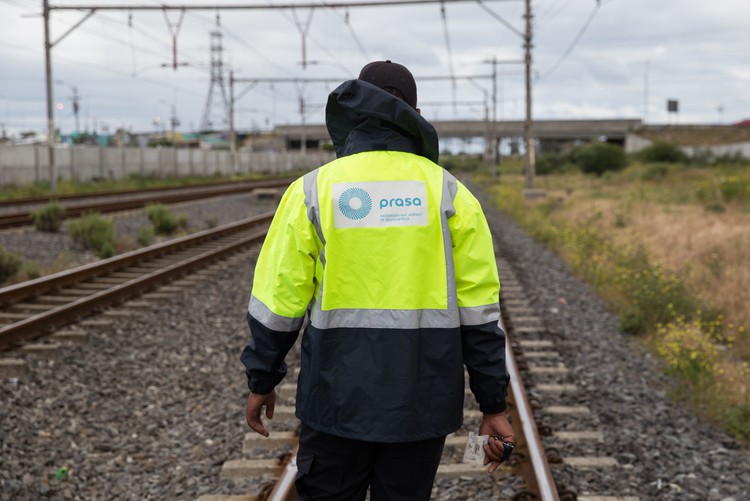
PRASA’s board failed to offer solutions to Cape Town’s rail crisis, MPs said on Tuesday. Photo: Ashraf Hendricks
14 February 2018
Members of Parliament expressed annoyance on Tuesday with the failure of the Passenger Rail Agency of South Africa (PRASA) to offer solutions to Cape Town’s rail crisis.
During a marathon hearing of the transport committee MPs heard presentations by PRASA, the Rail Safety Regulator (RSR) and civil society coalition UniteBehind. The meeting was to have taken place last week, but PRASA’s board failed to show up.
“Showing pictures of vandalism does not help us find a solution,” said Leonard Ramatlakane (ANC), acting chairperson of the committee.
PRASA’s presentation, by acting group Chief Executive Officer Cromet Molepo, addressed issues like the extent of vandalism, cable and equipment theft, and the status of accident investigations.
Short, medium and long-term plans to improve train security were also described. These plans included the implementation of “security technology such as alarms, CCTV and night-vision drone technology”, concrete walls in “high-risk areas” and “vandal proofing of critical operating infrastructure”.
But Ramatlakane called the presentation “a cut and paste job”, and said that PRASA had not offered solutions.
“People are not asking for anything special, they want to be transported,” said committee member Manuel de Freitas (DA). “PRASA did not address this in their presentation.”
He said PRASA’s presentation was “smoke and mirrors” that detracts from the “issues of moving people”.
UniteBehind played a video that showed people standing on the roofs of crowded trains and between the carriages. “What you have just witnessed now, is desperation and fear of losing employment,” said Zukiswa Vuka of UniteBehind.
The coalition cited a RSR report that there had been 2,079 injuries and 495 fatalities on PRASA trains in 2016/17 alone.
The most pressing concern raised by the transport committee was the reopening of Metrorail’s Central Line in Cape Town. The line has been closed since January 9.
Committee member Sheilla Xego (ANC) said she had expected PRASA to provide a contingency plan for people who cannot get to work.
“We did go through all the contingencies,” said PRASA board member Dr Natalie Scheepers. “We looked at what the other options are.”
Scheepers explained that she had spoken to Metrorail Regional Manager Richard Walker about the use of Golden Arrow buses as a “goodwill” alternative for commuters.
But, she said, Golden Arrow was already stretched beyond capacity and claimed not to have enough staff. “So that’s off the cards, chairperson,” said Scheepers. “We really tried to look at other interventions in terms of assisting the commuters.”
Ramatlakane questioned the approach to Golden Arrow instead of PRASA’s own bus company Autopax. “Why doesn’t PRASA consider an interim arrangement with Autopax, which is directly under the control of PRASA? Instead of Golden Arrow, which is a private entity?”
Walker said Metrorail planned to get the Central Line re-opened by 21 February. “We have done everything we can,” said Walker. “We don’t want to rush into reinstating service and probably expose commuters to further risk.”
He said that Metrorail would request that the RSR be part of the inspection of the line before services were reinstated.
Regarding security concerns, Walker explained that as of 9 February, Metrorail had appointed an additional 88 armed guards at “hotspot stations, including Langa, Netreg, Bonteheuwel and Heideveld”.
After a full day the committee adjourned the meeting to next week, when the PRASA board has been told to present solutions and deadlines.